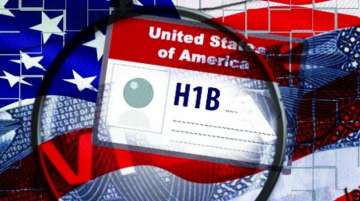A federal US agency announced Friday it has completed the process to implement the H-1B electronic registration process for the 2021 cap season. As a result of this, companies applying for H-1B visas for foreign workers for the fiscal year 2021 would have to register online and pay a processing fee of USD10. The US Citizenship and Immigration Services would start accepting the H-1B petitions from April 1, 2020 for the next fiscal year.
"The electronic registration process will dramatically streamline processing by reducing paperwork and data exchange, and will provide an overall cost savings to petitioning employers," the USCIS said Friday.
Under this new process, employers seeking H-1B workers subject to the cap, or their authorized representatives, will complete a registration process that requires only basic information about their company and each requested worker.
The USCIS will open an initial registration period from March 1 through March 20, 2020. The H-1B random selection process, if needed, will then be run on those electronic registrations. Only those with selected registrations will be eligible to file H-1B cap-subject petitions, a media release said.
"By streamlining the H-1B cap selection process with a new electronic registration system, USCIS is creating cost savings and efficiencies for petitioners and the agency, as only those selected will now be required to submit a full petition,” said USCIS Deputy Director Mark Koumans.
"The agency completed a successful pilot testing phase, which included sessions with industry representatives, and implementation of the registration system will further the goal of modernizing USCIS from a paper-based to an online-filing agency,” he said.
USCIS will post step-by-step instructions informing registrants how to complete the registration process on its website along with key dates and timelines as the initial registration period nears.
The federal agency will also conduct public engagements and other outreach activities to ensure registrants and interested parties are familiar with the new registration system, it said.
The USCIS may determine if it is necessary to continue accepting registrations, or open an additional registration period, if it does not receive enough registrations and subsequent petitions projected to reach the numerical allocations, it added.
Also Read: 3 dead, 8 injured after Saudi student opens fire at US naval station
Also Read: Pak submits report comprising answers to FATF's remaining 22 action plans
Latest World News

